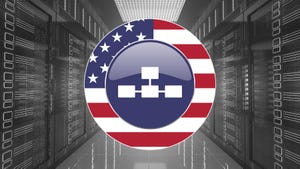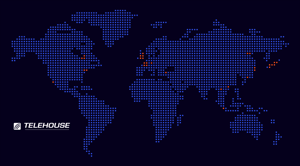Data Lakes vs. Data Centers: More Than Just a Drop in the OceanData Lakes vs. Data Centers: More Than Just a Drop in the Ocean
Data lakes and data centers are often discussed together, but they serve distinct roles. Here’s why the distinction matters.

With the rise of AI and big data, terms like “data lake” and “data center” are often used in overlapping discussions – but they refer to entirely different concepts. A data center could host a data lake, but beyond that, the two have little in common.
So why the confusion? Both play a role in managing and storing vast amounts of information, and as organizations scale their AI and analytics capabilities, the infrastructure and data management strategies behind them become increasingly intertwined.
Here’s a closer look at what a data lake is, how it differs from a data center, and why the distinction matters.
What is a Data Lake?
A data lake is a software platform that servers as a central repository for data. Typically, the purpose of data lakes is to host the various types of data that a business needs to manage. Data lakes can serve as a site for hosting structured data (like databases) as well as unstructured data (like videos or emails).
Data lakes became popular starting about a decade ago. At the time, most businesses that needed to manage or process data on a large scale relied on so-called data warehouses, which are less flexible because they can usually only support structured data. By offering a centralized place to store almost any type of data, data lakes facilitated diverse data management and analytics use cases.
Data lakes have evolved over the years, with some data lake platforms adding features designed to enhance data governance and security or streamline data processing. Still, the core purpose of data lakes – centrally storing data of varying types – remains unchanged.
How is a Data Lake Different from a Data Center?
The difference between data lakes and data centers is that data lakes are software-based repositories for information, while data centers are physical facilities that house IT equipment. They are fundamentally distinct entities that address quite different needs.
To be more specific, the key differences between data lakes and data centers include:
Data lakes are software platforms, whereas data centers are physical locations.
The only thing you can store in a data lake is data. A data center can host data in the sense that data centers often house the physical infrastructure necessary to store information, but the main purpose of data centers is to house servers.
Data centers include physical systems like HVAC and power infrastructure to keep IT equipment operating. Data lakes don’t include any of these components because they are software platforms, not physical facilities.
Common Ground: Where Data Lakes Meet Data Centers
If people are sometimes confused about how data lakes differ from data centers, it’s probably because data centers can host the underlying physical infrastructure used to build data lakes.
To create a data lake, you need at least one server (typically, you’d use many more), as well as storage media (like disks) that can store the information you want to house in your data lake.
Since the purpose of data centers is to provide space for deploying IT infrastructure, you can set up the components of a data lake inside a data center.
Read more of the latest data storage news
But in this respect, data lakes are no different from any other type of IT workload – such as conventional applications or file systems – that can also reside on infrastructure hosted in a data center. There is no special relationship between data lakes and data centers.
Note, too, that most data lake platforms abstract the data environment from the underlying physical infrastructure that hosts it. This means that people who manage data within a data lake would typically have no idea which physical servers are powering their workloads, or where the disks reside that host their data. In this sense, the data center that happens to host a given data lake is irrelevant to the functionality of the data lake itself.
Clarifying Data Lakes vs. Data Centers
Ultimately, most data lakes rely on data centers – except for those hosted on on-prem servers outside traditional data center environments. That said, data lakes and data centers serve distinct purposes, and understanding one doesn’t require expertise in the other.
About the Author
You May Also Like









